- NEW DVD Series – Stone Setting with Bezels
- Tube Set Charm by Kim St. Jean
- Prong Basket Pendant by Kim St. Jean
- NEW DVD Series – Stone Setting with Cold Connections
- New DVD Series – Stone Setting with Wire
- NEW DVD Series: Introduction to Stone Setting by Kim St. Jean
- Featured Tool: Bracelet Bending Plier
- NEW Dvd by Eva Sherman
- Fun, Fast Fold Forming DVD Series
- Double Band Ear Cuff from Alex Simkin
Daily Wire Tip Sept. 26: Choosing Wire
Daily Wire Jewelry Making Tip
September 26, 2009
Question:
What is the rule of thumb for uses of gauges, temper of wire? Most projects I see recommend half-hard wire.
Answer:
As the artist and creator, you are the one who will decide which gauge and temper to use for whatever design you are making! There are so many different ‘styles’ of wire jewelry, and each instructor and/or author has their favorite, however to generalize: ‘Sculpting’, is mainly done by hand with few tools involved and most of the wire used is dead soft so it can be easily manipulated, in gauges according to the size of the project from 24g through 18g; ‘Coiling’ utilizes mainly round and half-round wire in soft and half hard tempers from 26g or smaller to 16g; ‘Weaving’ is also done in both dead soft and half hard, in all sizes; while ‘Classic or Traditional’ designs use mainly half hard, often incorporating All tempers, shapes and gauges.
I would suggest that a person follow a few patterns or wire wrapped tutorials, getting the ‘feel’ of different wires as the authors who designed the patterns did so for specific reasons such as why they choose certain tempers and gauges, according to what components and embellishments are involved in the piece being made. Once you feel comfortable with certain techniques, you’ll be able to go off on your own, knowing which wire You want to use for whatever technique.
Answer contributed by Dale “Cougar” Armstrong





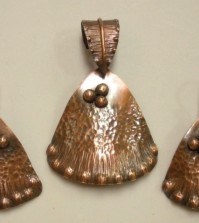
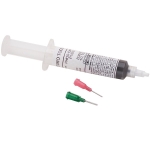
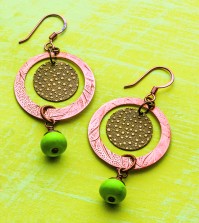
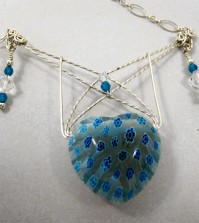

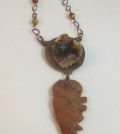
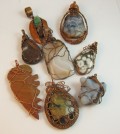

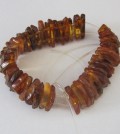

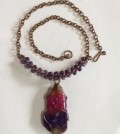
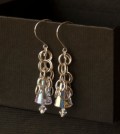
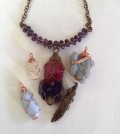
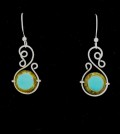
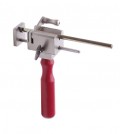
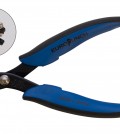
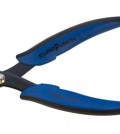
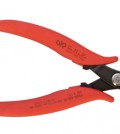
Gailavira Jewelry
September 27, 2009 at 7:58 am
Just a suggestion for weaving with wire. I was taught that when you do weaving and coiling, there should be an 8 or 10 number difference between the frame and weaving wires in order to make everything look more balanced and proportional. For instance, if the frame wires are 20g, then you should use 28g or 30g for the weaving and coiling. After playing around with other gauge wires for similar projects I have found that the 10 number difference rule really does make the piece look better.
michelle mertz
September 27, 2009 at 9:14 am
I have been working with Artistic Wire, and would like to try sterling silver. What hardness would be equivalent to that?
andrea udell
September 27, 2009 at 9:56 am
Love having Dale and all the clarity and tips.Would like to add , after receiving her new book , I have been holding off making the bracelets and necklaces until I can purchase the half hard wire .which seem to be required to hold their shape in those designs.
I personally adore working in dead soft wire which allows so much flow in the sculpting process, whereas Dale explains that there is less kinking and a bit more discipline in the harder wire…………
we shall see.
Thank you for all the new information
Andrea Udell
(The Tissue Lady Project)
Krister
April 1, 2010 at 6:29 pm
Dale, I hear a lot about mandrells, one I saw is using knitting needles as mandrells. Wrapping wire around them will result in jump rings having the exact same ID as the mandrell. What are your thoughts on this idea? Is it a cost savings to buying ready made jump rings? Knitting needles I have in various sizes. I’m tempted to give it a try.
dalecgr
April 2, 2010 at 9:57 am
Hi Krister, yes – knitting needles, pencils, screw driver, anything that is consistent in shape and long enough will work! You can even put these items into a drill, hold one end of the wire with pliers and spin the drill to coil the wire.